Education is Your Resistance: Opening Remarks with Dean Kyte and Rector Federica Mogherini
CGIA Moderators Christine Munson and Vishal Manve
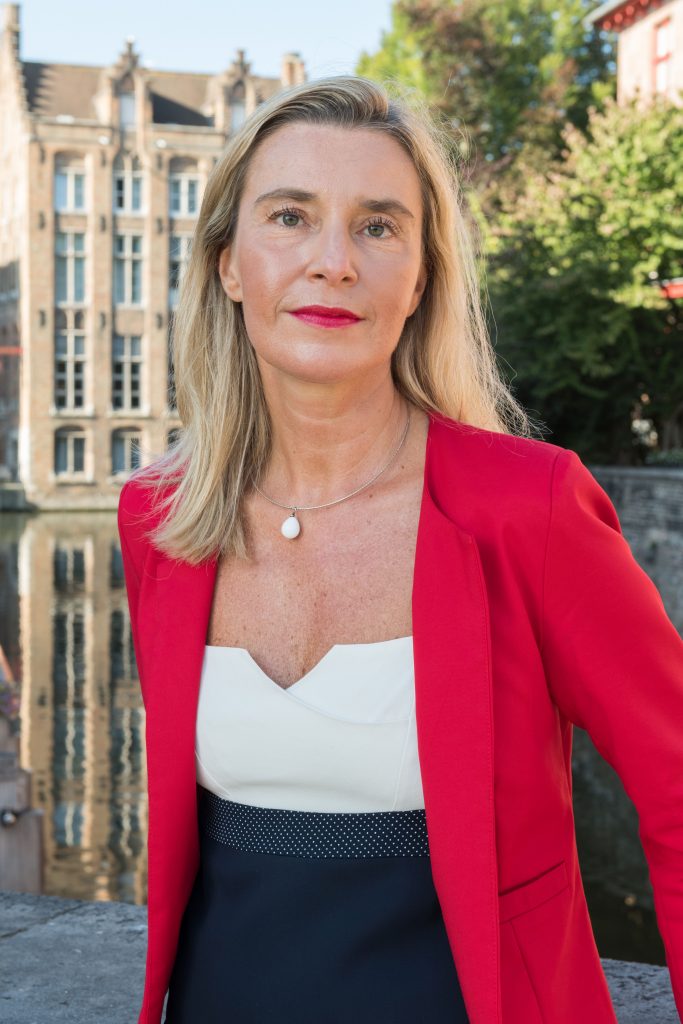
Federica Mogherini (she/her)
Opening Speaker
Federica Mogherini (she/her/hers) is the Rector of the College of Europe since September 2020.
She has co-chaired the United Nations High Level Panel on Internal Displacement from January 2020 until September 2021.
Previously she has served as the High Representative of the European Union for Foreign Affairs and Security Policy and Vice-President of the European Commission, from 2014 to 2019.
Prior to joining the EU, she was Italian Minister for Foreign Affairs and International Cooperation (2014), and a Member of the Italian Chamber of Deputies (2008-14). In her parliamentary capacity, she was Head of the Italian Delegation to the NATO Parliamentary Assembly and Vice-President of its Political Committee (2013-14); member of the Italian Delegation to the Parliamentary Assembly of the Council of Europe (2008-13); Secretary of the Defence Committee (2008-13); and member of the Foreign Affairs Committee. She also coordinated the Inter-Parliamentary Group for Development Cooperation.
Federica Mogherini is a Fellow of the Harvard Kennedy School. She is also a member of the Board of Trustees of the International Crisis Group, Fellow of the German Marshall Fund, member of the Group of Eminent Persons of the Preparatory Commission for the Comprehensive Nuclear Test Ban Treaty Organization, member of the European Leadership Network for Multilateral Nuclear Disarmament and Non-Proliferation, and member of the Board of Directors of the Italian Institute for Foreign Affairs (IAI). She has a degree in Political Science from the University of Rome “La Sapienza”.
She was born in Rome in 1973, lives in Belgium and has two daughters.
Challenging for Change: Keynote Address with Rana Ayyub and Guest of Honor Snigdha Sur
CGIA Moderator Rohini Roy
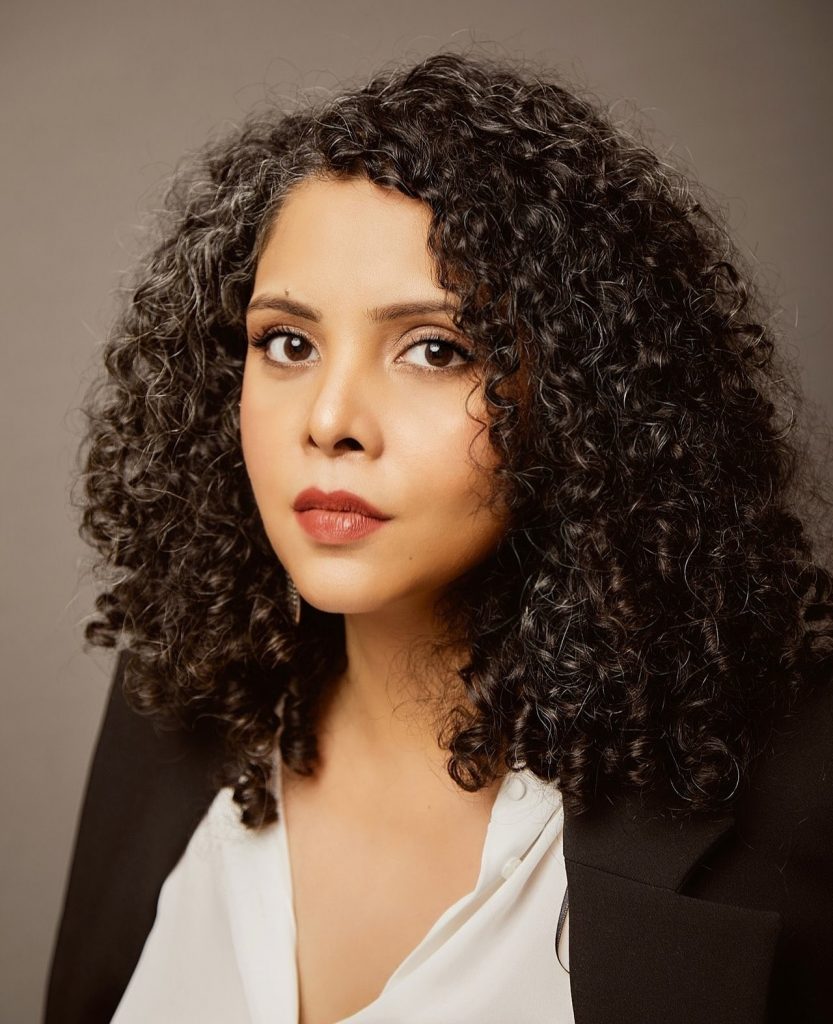
Rana Ayyub (she/her)
Keynote Speaker
Rana Ayyub (she/her/hers) is an Indian investigative journalist and a global opinions writer at the Washington Post. She has worked as a reporter, editor and columnist with some of the leading publications in India and internationally. Her pieces appear in the Time, New York Times, Guardian, Atlantic and Foreign Policy among other publications. Rana and her work have been profiled by prestigious publications including The New Yorker, the Atlantic, Time, Guardian and Observer among others.
She has reported on religious violence, extrajudicial killings by the state, insurgency in Kashmir, terrorism by the Tamil tigers in Sri Lanka and authored an international bestseller titled “Gujarat Files: Anatomy of a Cover-Up’, an undercover investigation which exposes the complicity of the Indian Prime Minister Narendra Modi in state-sponsored genocide.
In December 2019, New Yorker profiled her for its cover story on “Blood and Soil in Narendra Modi’s India.”
In a career spanning sixteen years, Rana has been awarded the Sanskriti award for integrity and excellence in journalism by the former President of India, APJ Abdul Kalam. She was the recipient of the Global Shining Light award for Investigative journalism in the year 2017 by the Global Investigative Journalism Network.
She was awarded the Most Resilient Global Journalist of 2018 at the Peace Palace in Hague by the Foreign Minister of Netherlands. In 2019, she was named by Time magazine among ten global journalists who face maximum threats to their lives across the world.
In the year 2018, The United Nations allotted six special rapporteurs to the Indian government to protect her safety, a first for an individual case in India.
In the year 2018, India’s top news magazine Outlook, awarded her the Youth Icon of the Year award.
In 2020, she was announced as the recipient of the McGill medal for journalistic courage from the University of Georgia.
In September 2020, the Muslim Public Affairs Council, an advocacy group in the United States awarded her the Courage in journalism honour.
In 2022, the Texas University gave her the ‘Award for Excellence in Journalism and International Human Rights.
In April 2022, Rana was awarded by the Overseas Press Club of America for her work in the Washington Post. She is presently working on a memoir and an adaptation of her book Gujarat Files. In the year 2022 for the second time in three years, the UN wrote to India to protect her from state enabled attacks and persecution in response to her journalism.
In June this year, the National Press Club named her the Aubuchon International Honoree, the highest honour by the United States National Press Club.
She is 38 and lives in Mumbai with her family.

Snigdha Sur-Guest of Honor (she/her)
Snighda Sur founded “The Juggernaut”, a site and newsletter dedicated to South Asian news, out of frustration with the lack of media coverage on South Asia. Since then, it has become so much more, a publication that prides itself in telling smart South Asian stories, owing to her drive to diversify storytelling.
She has worked at McKinsey New York, in Bollywood, in media-focused venture capital/PE, in product/marketing at an Indian video streaming company, and in launch strategy for Reese Witherspoon’s Hello Sunshine. She also advised BuzzFeed, Quartz, and Scroll.in.
After graduating from magna cum laude from Yale College in Economics and South Asian Studies, she went on to receive her MBA from Harvard Business School as a Baker Scholar. She is fluent in Hindi and Bengali and sometimes can slip into Mandarin.
Happiness is Your Resistance: Closing Plenary with Former Mayor Kim Janey
CGIA Moderator Aanchal Manuja
Closing speeches by Co-Chairs Rohini Roy and Christine Munson
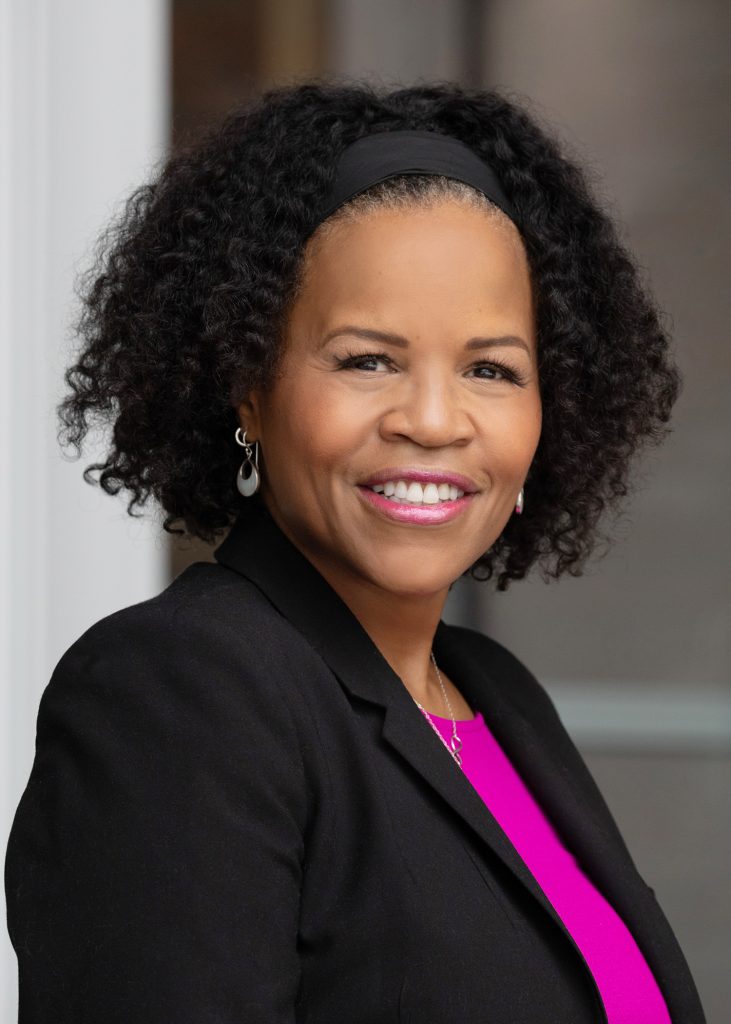
Kim Janey (she/her)
Closing Speaker
Kim Michelle Janey is the president & CEO of Economic Mobility Pathways (EMPath), a nonprofit organization dedicated to helping families living in poverty to dramatically improve their economic mobility. EMPath offers a unique combination of direct services; a learning network of human services organizations; and research and advocacy for what works. This “virtuous circle” allows each part of the organization’s work to inform what it knows, does, and shares with others to seed systemic change.
Janey has been at the center of Boston’s history — the bad and the good. At eleven years old, Janey was on the front lines of the battle to desegregate the city’s schools, facing rocks and racial slurs during Boston’s tumultuous busing era in the 1970’s. Forty-five years later, Janey made history when she was sworn in as Boston’s first woman and first Black mayor, successfully leading the city through a multitude of unprecedented challenges, including the COVID-19 global pandemic.
Janey began her tenure with a citywide agenda of recovery, reopening, and renewal to address systemic inequities exposed and exacerbated by the Covid-19 pandemic. Janey re-opened Boston’s economy and its public schools by centering equity and prioritizing health and wellness. She invested millions to support small businesses, expanded protections for renters and homeowners, and launched fare-free public transit. Under Mayor Janey’s leadership, Boston experienced its safest summer in 5 years and became one of the most vaccinated big cities in America.
Prior to becoming Mayor, Janey made history in 2017 when she was elected to the Boston City Council as the first woman to represent District 7. In 2020, she was elected by her peers to serve as President of the most diverse City Council in Boston’s history.
Devoting her life to public service, Janey has 25 years of experience in the non-profit sector. In her role at Massachusetts Advocates for Children, Janey championed systemic policy reforms to increase equity, excellence, access, and opportunity in Boston Public Schools. Prior to that, Janey worked as a Community Organizer, advocating for affordable, quality child care.
Most recently, Ms. Janey served as a Spring 2022 Resident Fellow at the Institute of Politics at the Harvard Kennedy School where she designed and led a study group entitled Racial Justice and Recovery: Leading American Cities to a More Equitable Future. She also served as an Inaugural Fellow at the Berry Institute of Politics at Salem State University.
Kim Janey has been recognized for her years of service with a number of awards, including the Boston NAACP Difference Maker Award in 2015, the Sapphire Award in 2017, a Community Leadership Award in 2018, and the Hubie Jones Award in 2020. In 2021 Janey was named one of Boston’s Most Impactful Black Women and listed in Boston Magazine’s 100 Most Influential Bostonians.
A proud fourth generation Roxbury resident, Janey comes from a long line of educators, entrepreneurs, artists, and advocates. Janey was raised with values that guide her to this day: the importance of education, the power of community organizing, and the fundamental principles of equity and justice.
Panels:
Choosing Invisibility is Your Resistance: The Fall of Roe v. Wade and Implications for Confidentiality
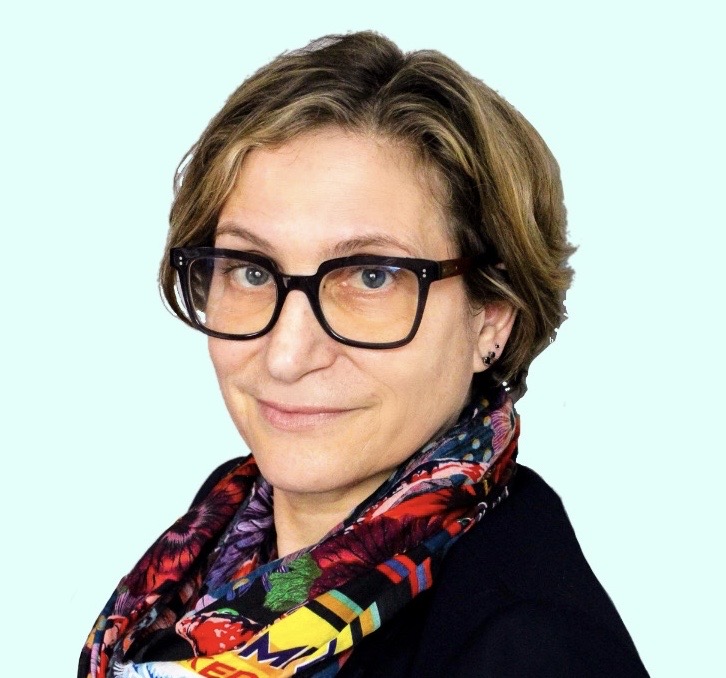
Dr. Janet Lefkowitz-Moderator (she/her)
Dr. Janet Lefkowitz is an OB/GYN serving as an Assistant Professor, Clinical Educator, physician at Brown University’s Warren Alpert School of Medicine and Women and Infants Hospital in Providence Rhode Island. Dr. Lefkowitz also serves as Medical Director of Reproductive Health Services in Alabama for Planned Parenthood Southeast. Prior to returning to the Northeast, she lived in Atlanta, Georgia where she was Chief Medical Officer and Medical Director for Planned Parenthood Southeast serving clinics in Alabama, Georgia, and Mississippi. Since returning to the northeast three years ago, Dr. Lefkowitz continued to travel south to provide and support access to comprehensive reproductive health care and women’s health care in Alabama, Georgia, Mississippi, and Florida. Since the Dobbs decision, she now provides abortion care in Connecticut and Rhode Island.
Dr. Lefkowitz enjoys working with medical students and residents, especially in the areas of family planning and values clarification surrounding abortion care. She strives to promote access to essential health care for those people who seek care.

Sarah Lee Day-Panelist (she/her)
Sarah Lee Day is a Justice Catalyst Fellow at Reproductive Equity Now, where she does legal policy work on abortion, contraceptive access, maternal health disparities, crisis pregnancy centers, and bodily autonomy in a “post-Roe” America. Sarah Lee earned her J.D. from Northeastern University School of Law, where she completed internships, including: human rights legal advocacy with the Due Diligence Project, reproductive rights impact litigation with the Lawyering Project, and reproductive rights policy work with NARAL Pro-Choice Massachusetts.
Prior to law school, Sarah Lee obtained a B.F.A. from Cornish College of the Arts, a B.S. in Psychology from Arizona State University, and an M.A. in Social Justice and Human Rights from Arizona State University. Sarah Lee is currently teaching EXP-0024: The Right to Abortion at Tufts Experimental College.
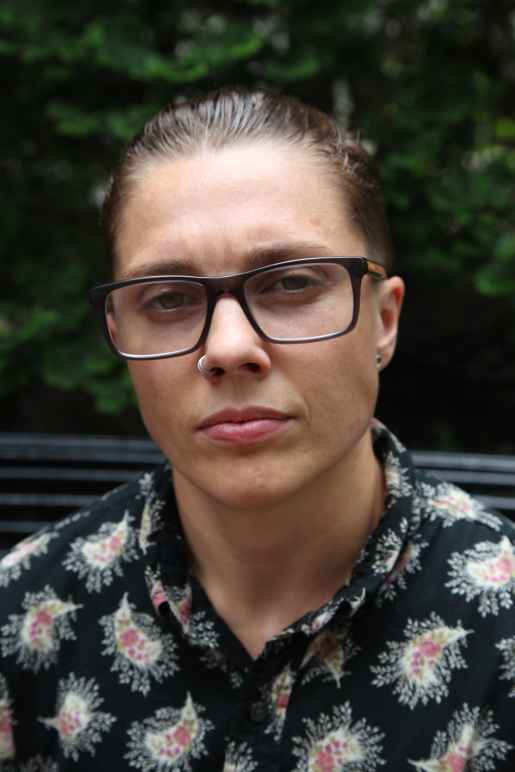
Kade Crockford-Panelist (they/them)
Kade Crockford is the Director of the Technology for Liberty Program at the ACLU of Massachusetts. Kade works on issues at the intersection of technology and civil rights and civil liberties, focusing on how systems of surveillance and control impact not just the society in general but their primary targets—people of color, Muslims, immigrants, and dissidents. Recently, Kade led the ACLU of Massachusetts’ Press Pause on Face Surveillance campaign, which has thus far won the passage of a state law regulating police use of facial recognition, and eight municipal bans on government use of face surveillance technology, including in Massachusetts’ four largest cities.
The Information Age produces conditions facilitating mass communication and democratization, as well as dystopian monitoring and centralized control. The Technology for Liberty Program aims to use our unprecedented access to information and communications technology to protect and enrich open society and individual rights by implementing basic reforms to ensure our new tools do not create inescapable digital cages limiting what we see, hear, think, and do.
Towards that end, Kade researches, strategizes, writes, lobbies, and educates the public on issues ranging from the wars on drugs and terror to warrantless electronic surveillance. Kade has written for Nature, The Nation, The Guardian, The Boston Globe, WBUR, and many other publications, and regularly appears in local, regional, and national media as an expert on issues related to technology, policing, and surveillance.
Kade is also a co-founder and manager of the ACLU of Massachusetts’ Data for Justice project, which uses data science to advance civil rights and civil liberties public education and law reform.
Find Kade’s blog, Privacy Matters, at privacysos.org/blog, the ACLU of Massachusetts’ dedicated privacy and technology website.

Erin Smith-Panelist (they/them)
Erin is a Louisville Kentucky native who has always had a passion for serving their community. After graduating high school Erin attended Northern Kentucky University where they majored in Political Science and minored in Pre-Law. Upon receiving her bachelor’s degree, Erin returned home and later enrolled in the University of Louisville to earn a master’s in Women and Gender Studies. Towards the end of their studies, they wrote and defended their thesis project on the division between the African American church and their LGBTQ congregation.
With the completion of their master’s degree, Erin began working for Safe Place Services as the Coordinator for Community Outreach. They later accepted a position as the Educational and Outreach Coordinator for the Louisville Metro Human Relations Commission. In between work, Erin has worked as a campaign coordinator for local political campaigns within their hometown.
On May 4th, 2020, Erin became the Executive Director for the Kentucky Health Justice Network or KHJN. KHJN supports Kentuckians towards achieving autonomy and justice for communities across the state of Kentucky. They, along with their staff and board, work to advocate, educate, and provide direct services to ensure all Kentuckians have power, access, and resources to be healthy and have agency over their lives. They also serve as the chair for the Louisville Pride Foundation, a 501(c)(3) charitable organization that celebrates the LGBTQ+ community and advances equity and representation for all people.
Existence is Your Resistance: Culture Wars on LGBTQIA+ Communities

Mani Soma-Moderator (he/they)
Mani Soma who is a genderqueer drag queen. Mani is an adult immigrant, who moved to the U.S, from Hyderabad, India in 2015 . Mani was one of the organisers of Queer Flashmob (Held at Osmani University to raise awareness on issues related to the LGBTQ community) in Hyderabad in 2015. Mani Soma was a board member of KhushDC (South Asian LGBTQ+ volunteer run organizations in the DMV area) from 2017 – 2020. Mani also runs the Telugayqueerproject on Instagram which highlights all TeluGAY Queer/Trans folks and celebrates their excellence.
Mani showcases KaMani Sutra, which blends their given name with India’s iconic book (Sex novel) of sexuality, Kama Sutra. Kamani Sutra is more than a “look.” It embodies the traditional glamor of sarees and jewelry while challenging the conventional mindset of gender-specific beauty/attire. KaMani sutra is a South Asian (teluGAY) genderqueer bearded drag queen from DMV area transcends western drag expectations by their performance repertoire and their aesthetic senses. #telugay #progressiveaunty #Telugayenby and lastly Mani loves to doodle mehandi designs on paper and wood.

Emily Channell-Justice-Panelist (she/her)
Emily Channell-Justice is the Director of the Temerty Contemporary Ukraine Program at the Ukrainian Research Institute. Channell-Justice holds a PhD, 2016, from the Graduate Center, City University of New York for work on sociocultural anthropology.

Claire Wilson-Panelist
Claire Wilson is a humanitarian practitioner, researcher and educator specialized in issues of gender and sexuality. For the past 10 years she has worked at various local and international organizations, including UN Women, World Health Organization (WHO), International Relief and Development, Mercy Corps, and Edge Effect in the Middle East. Since graduating from the Fletcher MALD program in 2018, she has been based in Lebanon working on the humanitarian response to the protracted Syrian refugee crisis, Beirut port explosions, and economic crisis. In 2020, Claire was seconded to the WHO to serve as a Gender Advisor for the national COVID response in Lebanon. She then returned to UN Women, where she currently works as a Gender and Humanitarian Specialist where she works on advancing a feminist and queer agenda in the humanitarian response through research, advocacy, policy and programming.
To Claire, bringing feminist and queer politics to practice in everyday bureaucracy is fundamentally about figuring out – how can we work in a feminist way – meaning, sharing power in spaces where power is kept for the few, and how can we work in a queer way, meaning, doing things differently in systems that benefit from the status quo.

Khookha McQueer-Panelist (they/them)
Khookha McQueer is a Tunisian digital artist, performer, and genderqueer person. In their youth, Khookha came out as a gay man, using their birth name, Khalil Ayari. In 2015 they came out a second time as genderqueer and began using the English personal gender pronouns
they/them/theirs along with their chosen name, Khookha McQueer. However, they still maintain some online platforms under Ayari, the name they first used for their artwork. (Their birth name is used here with their permission.)
Khookha began their career as a graphic designer, explaining that “at first I was not considering myself making art or producing anything related to art,” but that “it started…during the most oppressive moments in my life, at some points in my life I was not able to externalize my thoughts and feelings through speaking and saying things about my preferences, orientation and gender identity clearly”
(Khookha McQueer 2017d).
With their digital artwork, Khookha resists a state apparatus that denies them their subjectivity and sexual autonomy as a non-heterosexual person. Khookha uses almost exclusively digital platforms such as Facebook and Instagram, a progression of their early career as a graphic designer. Furthermore, as a genderqueer person, they experience cis-sexism. Genderqueer and transgender individuals in Tunisia, as is the case globally, are subject to violence and hate not only from heteronormative society but also from less tolerant members of lesbian, gay, bisexual, transgender, queer, intersex, and other marginal sexualities (LGBTQI++) communities.
Khookha’s images present opportunities for small shifts in perception that, com-pounded, may eventually contribute to a less oppressive Tunisia; the mere representation of gender variation challenges viewers to engage with difference. Khookha also strengthens the development of queer and queerness as political-sexual positions by making visible a queer Tunisian politic that resonates with other queer-identified individuals, specifically genderqueer, transgender, and gender-non-conforming people. In doing so, Khookha addresses both the erasure of these individuals from LGBTQI+ communities and the violence perpetrated against them.
Compassion is Your Resistance: Conversations about Race, Gender and Rebuilding with Care
CGIA Moderator Aubrey Hartnett

Dzidzor-Panelist (she/her)
Dzidzor is a Ga-Ewe folklore performing artist, who is paused and moved by Octavia E. Butler’s question, ‘What do we need to do now, to create the future that we want?’ She often echos the words of Toni Morrison’s words and her father’s prayers as a guide to reach back into the past to lead us towards the present. Dzidzor uses the tool of storytelling, community archiving, and collaging sounds as a portal to transcend through time and space.
Dzidzor organizes community art events and facilitates workshops around empowerment and strengthening the voice, she intentionally calls for community to reach into the lessons of yesterday while honoring proverbs, poems and prayers that challenge and lift us up. Dzidzor is the founder of the Black Cotton Club and partners with Grubstreet, ICA Boston, and Boston Public Schools to teach creative empowerment workshops in Boston. Dzidzor is a candidate for a Masters in Theological Studies at Boston University and holds the role of a Community Archivist at Northeastern University. She is currently working on a listening and public art project entitled, ‘Wilderness’ with Crystal Bi.
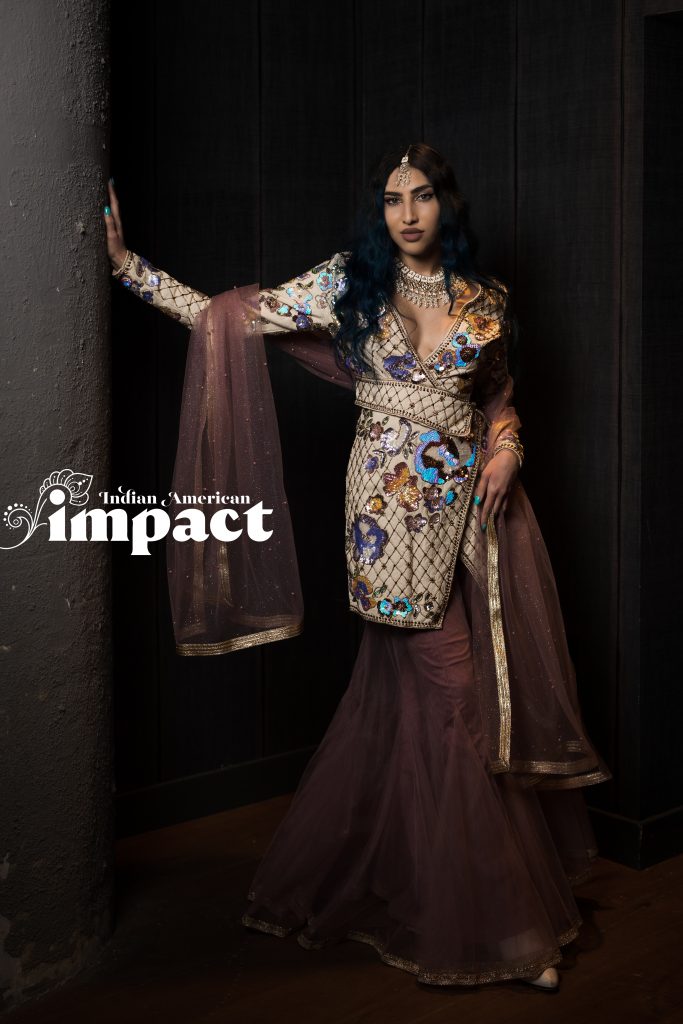
Ravjot Mehek Singh-Panelist (she/her)
Ravjot Mehek Singh is an award winning Indian American Film and TV Director and art activist. With many multifaceted successes under her belt at a very young age, many Indian and American magazines and news outlets refer to her as one of the youngest female directors in Bollywood and one of the only openly LGBTQ+ women directors in South Asia. By the time she was 21, she had directed 3 television talk shows for Dish Network through the largest Asian American TV channel Jus Punjabi. She began directing major Bollywood music videos and was listed as being the youngest ever female music video director to ever be launched by T-Series (India’s largest record label) in 2021.
Ravjot’s work also takes on installation artwork which has been featured in major galleries such as the Guggenheim Museum in New York City in collaboration with other talented artists and in various art galleries in New England, USA. As a LGBTQ+ activist, she has been featured in countless magazines, articles, and shows including Harper’s Bazaar and Cosmopolitan magazine. Her work is often likened to that of the Guerrilla Girls.
Her film and art activism work is driven by a passion to create lasting change not only in the entertainment field, but in society. Her documentary feature debut, “I Stand With Jessy”, was not only awarded best documentary at the Dada Saheb Phalke Film Festival (one of India’s largest film festivals) in India in 2017 amongst other film festival wins, but also made waves in local legislation to provide better health-care for low income women. An advocate for change through art, Ravjot constantly works with large scale organizations such as Phenomenal, Impact, Sikh Coalition, PBS, and YWCA to create change and advocate for a better, more just future.
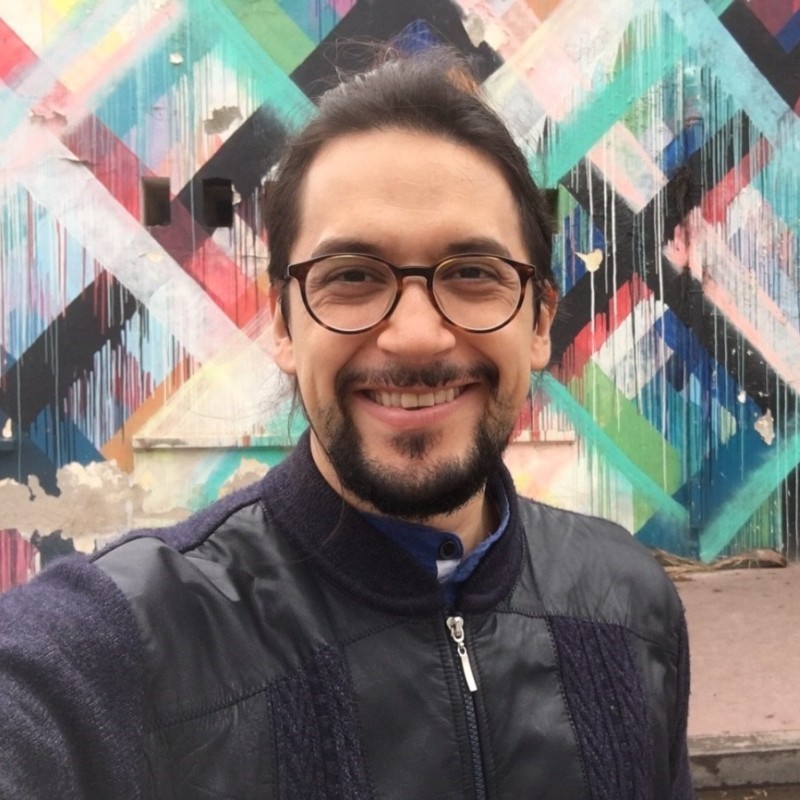
Sebastián Molano-Panelist (he/him)
Sebastián Molano is from Colombia, he is a parent of a four-year-old and currently lives in Boston. He graduated from the MALD program at the Fletcher School in 2012 and is currently pursuing an executive program on NGO leadership and management at Harvard Kennedy School of Government.
Sebastián has 17 years of international experience working in Latin America and the Caribbean, from the humanitarian response in Haiti to field development work in Central America, and extensive electoral work. As a communicator for social change, Sebastian gives presentations and trainings in national and international scenarios on gender issues and writes in English and Spanish on topics related to gender and masculinity.
In 2014, Sebastián created an initiative called Defying Gender Roles, an advocacy initiative aiming to challenge and change harmful gender roles and norms in our societies with a focus on masculinities from a feminist intersectional perspective. Since 2018, Sebastián has been documenting his parenting experience in the blog “master in love” focusing on the process and reflections of attempting to raise a child as a cis/het migrant man in a feminist way.
Currently, Sebastián Molano is part of the Gender Justice and Inclusion Hub team at Oxfam in the US. In his role as Intersectional Feminism Manager, he leads efforts to develop deeper understanding of gender justice, feminisms, care, racial justice and intersectionality. He led an internal campaign to change Oxfam Parental Leave for 4.5 years and is particularly interested in care as an antidote to male violence.
Sebastián brings extensive experience in facilitation, action learning, and gender and masculinities. He has been part of Oxfam since March 2017.
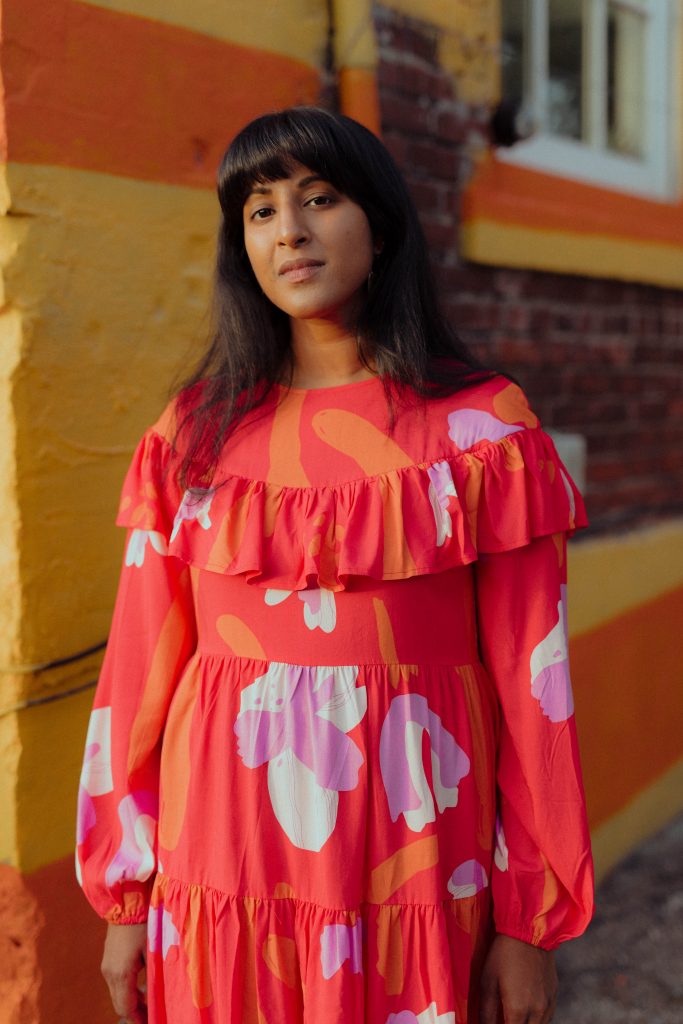
Coco Shah-Panelist (they/she/he)
Coco Shah is a clinical social worker, healing justice organizer, consultant, writer, training doula and the founder of their therapeutic practice, Bad Indian Wife. They earned their MSW from Smith College and currently reside in Massachusetts after over a decade of life in Vermont.
In early years of self-conceptualization it became clear to Coco that they were born into the world to work with humans who were, like her, in pursuit of simply being. During the height of the pandemic she refused further career collusion with the medical industrial complex and transitioned to organizing community care full time. With the support of community donations Coco provided free therapeutic groups and resources to People of the Global Majority in collaboration with local Black and Brown healers. Their efforts were funded by nearly 600 community members, small businesses, and organizations.
In childhood she was often labeled by elders as too outspoken and informed that she would someday “make a bad Indian wife”. Over time Coco realized just how much this resistance to cisheteronormativity and the status quo affirmed her sense of self-worth. They continue to challenge the expectation that clinicians should perform a sterile version of themselves with clients. Coco’s reclamation of Bad Indian Wife as a nonbinary nontraditional psychotherapist is a statement of queer multicultural existence. Coco believes therapy is a form of time travel that everyone can access. They love exploring intimacy and attachment with people of all ages and identities.
Localizing Resistance: Uplifting Local Advocacy – MA Abolition Movement and Implications of Decarceration
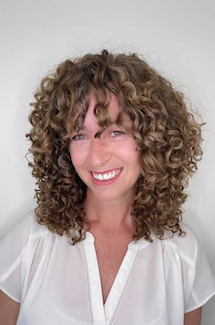
Bridget Conley-Moderator (she/her)
Bridget Conley is the Research Director of the World Peace Foundation and Associate Research Professor at The Fletcher School. At WPF, she is the lead researcher on WPF’s program, “Protecting Vulnerable Groups,” and program director for the Global Arms and Corruption projects.
Her current research focuses on “Tracking COVID-19 in Detention”. Among her publications are: Accountability for Starvation: Testing the Limits of the Law (Oxford University Press, 2022), with co-editors Alex de Waal, Catriona Murdoch and Wayne Jordash; Memory from the Margins: Ethiopia’s Red Terror Martyrs Memorial Museum (Palgrave 2019); and (ed) How Mass Atrocities End: Studies from Guatemala, Burundi, Indonesia, the Sudans, Bosnia-Herzegovina, and Iraq (Cambridge University Press 2016).
She has also published on issues related to prison conditions, starvation crimes, the 1992 – 1995 war in Bosnia, mass atrocities and genocide, and how museums can engage on human rights issues. She previously worked as Research Director for the U.S. Holocaust Memorial Museum’s Committee on Conscience, where she led research and projects on contemporary threats of genocide.
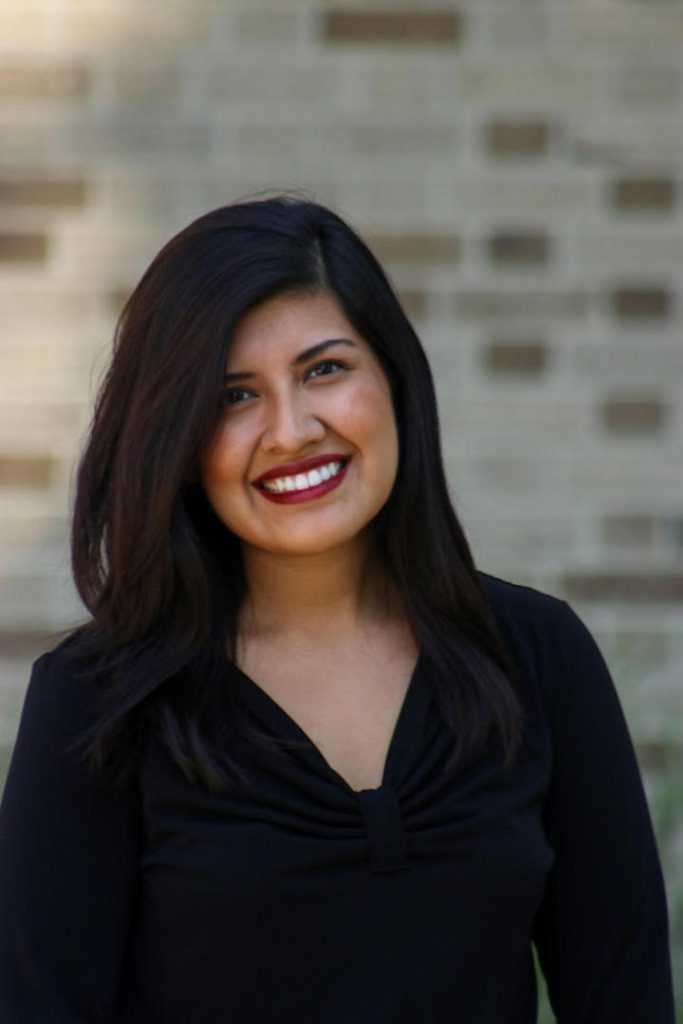
Romelia Solano-Panelist (she/her)
Romelia Solano is a Ph.D. Candidate in Political Science at the University of Notre Dame. In the academic year 2022-2023, she will serve as a non-residential fellow for the W. E. B. Du Bois Research Institute at Harvard University. Her doctoral research on immigrant detention is funded by a National Science Foundation Doctoral Dissertation Improvement Grant and a Ford Foundation Dissertation Fellowship.
Her empirical strategy leverages interviews with formerly detained immigrants and their networks, large-n survey data, administrative data, and causal inference techniques to develop and test a theory of individual and group responses to traumatic experiences with the repressive face of government. Her research appears in Politics, Groups, and Identities, the Journal of Race, Ethnicity, and Politics, and outlets like the Washington Post.
Romelia is the Co-Founder of Mariposa Legal, a holistic legal services organization that provides
detained removal defense for Indiana residents and represents individuals with mental illness through the National Qualified Representative Program. Mariposa’s theory of change is that directly impacted communities are central agents of social transformation and lawyering and research are tools for movement building. In addition, she holds an M.A. in Political Science from Notre Dame and a B.A. in Political Science and Latino Studies from the University of Illinois at Urbana-Champaign.
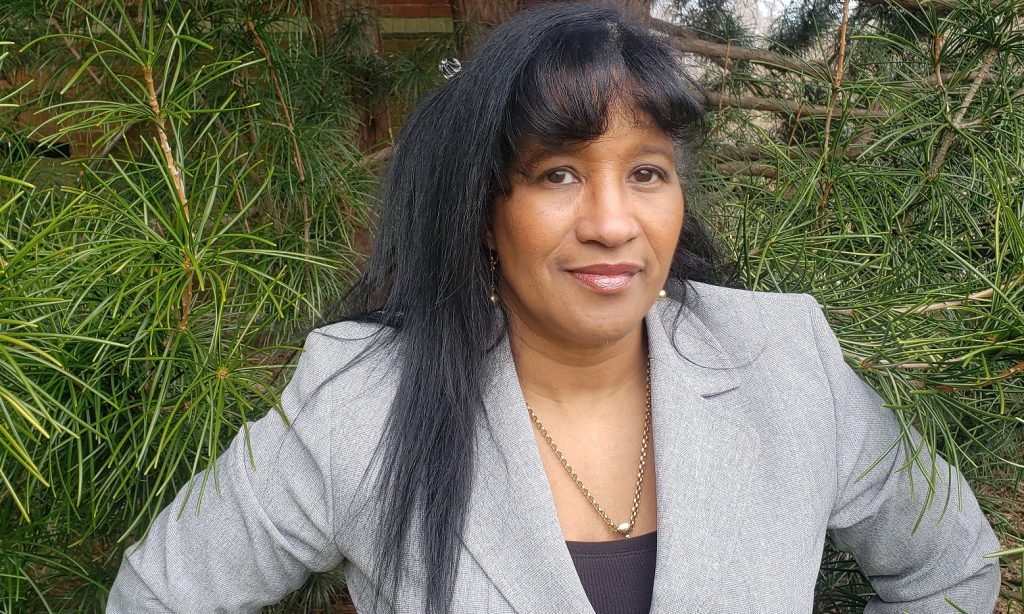
Leslie Credle-Panelist (she/her)
Founder and Executive Director at Justice 4 Housing, Leslie Credle is leading the crusade to dismantle antiquated and discriminatory housing policies that target justice-involved individuals that leads to homelessness, recidivism and the separation of families. Leslie is the creator of the Hands-On-Defense model, which mobilizes communities to fight housing injustices. Committed to mentoring and movement building, she created a network of directly affected Peer-Leaders who educate communities about the collateral consequences of incarceration and housing insecurity.

Sashi James-Panelist (she/her)
Sashi James is the Director of Reimagining Communities, an infrastructure created to build up people by saturating communities most impacted with the tools they need to create a healthy thriving neighborhood. She is a daughter of formerly incarcerated parents and because of her experience she understands the trauma endured when a parent is separated from their child because of incarceration. She organizes in Boston, Massachusetts to end the incarceration of women and girls and is the mother of Katori Rae James.
Globalizing Resistance: Conversations about Resisting Structures within the United Nations and Other International Organizations
Student Moderator: Danielle Demers (she/her)
Danielle is a PhD student (and MALD ’16) at the Fletcher school, focusing on the gender dynamics of conflict and humanitarian response in the Middle East. Prior to returning to Fletcher, Danielle spent more than six years working as a researcher supporting various aspects of the humanitarian response to the Syrian conflict.

Claire Wilson-Panelist
Claire Wilson is a humanitarian practitioner, researcher and educator specialized in issues of gender and sexuality. For the past 10 years she has worked at various local and international organizations, including UN Women, World Health Organization (WHO), International Relief and Development, Mercy Corps, and Edge Effect in the Middle East. Since graduating from the Fletcher MALD program in 2018, she has been based in Lebanon working on the humanitarian response to the protracted Syrian refugee crisis, Beirut port explosions, and economic crisis. In 2020, Claire was seconded to the WHO to serve as a Gender Advisor for the national COVID response in Lebanon. She then returned to UN Women, where she currently works as a Gender and Humanitarian Specialist where she works on advancing a feminist and queer agenda in the humanitarian response through research, advocacy, policy and programming.
To Claire, bringing feminist and queer politics to practice in everyday bureaucracy is fundamentally about figuring out – how can we work in a feminist way – meaning, sharing power in spaces where power is kept for the few, and how can we work in a queer way, meaning, doing things differently in systems that benefit from the status quo.
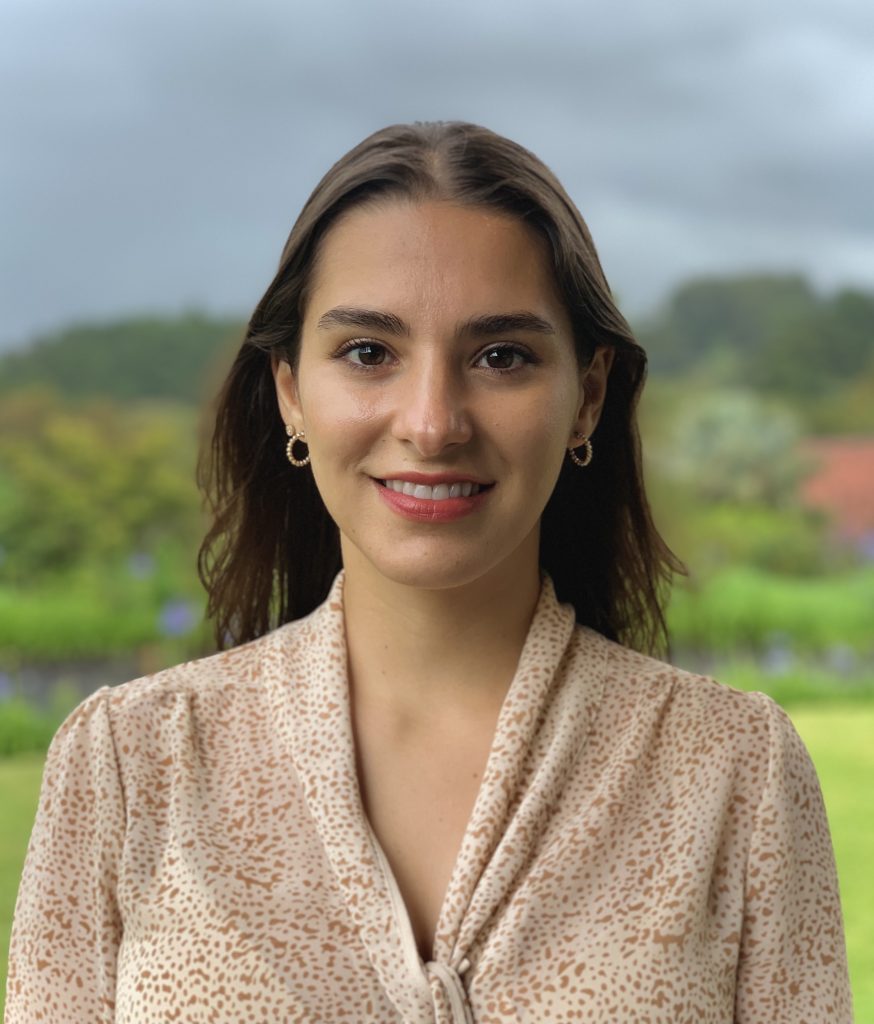
Ximena Apéstegui-Panelist (she/her)
Ximena Apestegui is a specialist in climate change adaptation policy, diplomacy, and management. From 2019 until September this year, she worked for the United Nations Environment Programme as the National Manager of Costa Rica’s Green Climate Fund Adaptation Readiness Project. The project focuses on strengthening the capacities of actors at the national and sub-national levels, for effectively undertaking country-driven, evidence-based, and gender-sensitive climate adaptation planning processes.
During 2018-2022 Ximena also served as an Advisor to the Ministry of Environment and Energy of Costa Rica and as the country’s Negotiator on matters related to adaptation during United Nations Climate Change Negotiations. During this period she led the development of Costa Rica’s first National Adaptation Plan. The plan was made official and of National Public Interest in April this year through an Executive Order signed by Costa Rica’s former President, Carlos Alvarado. Ximena also led the construction of adaptation targets for the country’s updated NDC (Nationally Determined Contribution) which was submitted in 2020 to the United Nations Framework Convention on Climate Change.
Prior to working with UNEP and the Government of Costa Rica, Ximena was a Programme Officer for the Asian Institute of Technology’s Regional Resource Centre for Asia and the Pacific (2017 – 2018). The Centre provides services geared towards building the capacity and skills of government officials and other stakeholders in Asia and the Pacific to effectively access climate finance and enhance climate change action. She also worked as a sustainable development consultant for Mesoamerica Investments, the Inter-American Development Bank, Stanford University’s Woods Institute for the Environment, and the Costa Rica USA Foundation for Cooperation.
Ximena holds a BS in Communications from the University of Costa Rica and an MS in Development Management from the London School of Economics’s School of International Development.

Dyan Mazurana-Panelist (she/her)
Dyan Mazurana, PhD, is a Research Professor at the Fletcher School of Law and Diplomacy where she co-directs the Gender Analysis and Women’s Leadership Program. She is also a Research Fellow at the World Peace Foundation at the Fletcher School. She is an Associate Research Professor at the Friedman School of Science Policy and Nutrition. Dyan Mazurana directs the Feinstein International Center’s Research Program on Women, Children, and Armed Conflict and co-directs the Masters of Arts in Humanitarian Assistance (MAHA) Program.
Mazurana’s scholarship focuses on gendered dimensions of humanitarian response to conflict and crises, documenting serious crimes committed during conflict, and accountability, remedy, and reparation. She serves as an advisor to several governments, UN agencies, human rights NGOs, and child protection organizations regarding humanitarian assistance and improving efforts to assist youth and women affected by armed conflict. This work includes the protection of women and children during armed conflict, including those people associated with fighting forces, as well as remedy and reparation in the aftermath of violence.
She has worked in Afghanistan, the Balkans, Nepal, and southern, west and east Africa. Mazurana has published more than 100 scholarly and policy books, articles, and international reports and her work has been translated into more than 30 languages.
Mazurana has a Ph.D. and an M.A. in women’s studies from Clark University. She also holds an M.A. and B.F.A. from the University of Wyoming, where she studied painting, art history, and feminist theory.
Networking Lunch:
Solidarity is Your Resistance
Workshops:
Self-Preservation Political Warfare: Workshop on Self-Care with Leigh Goodmark
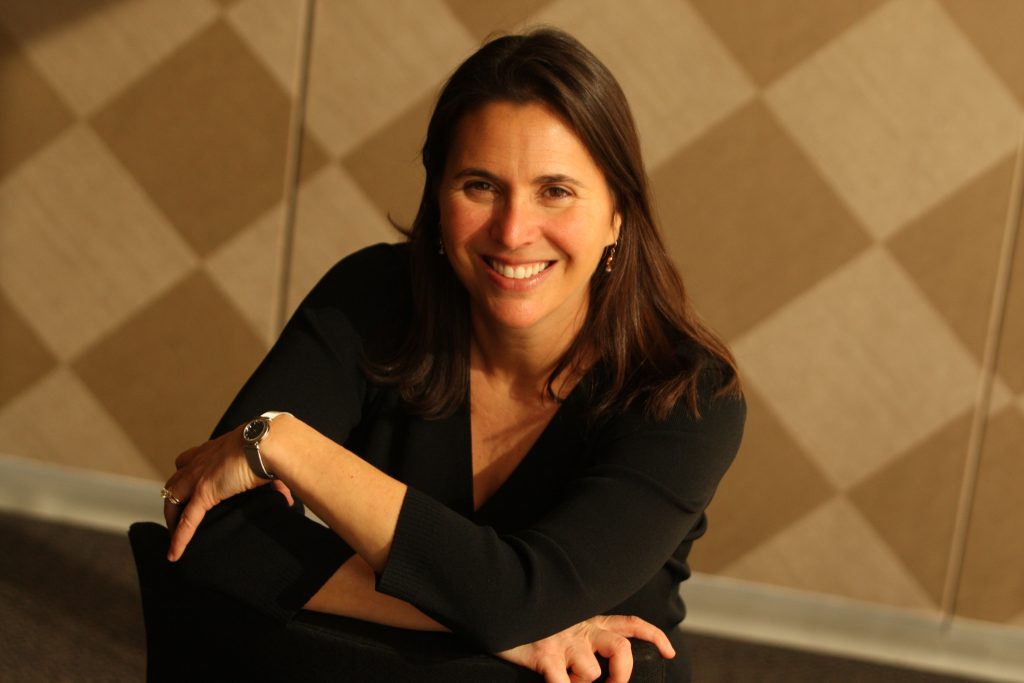
Leigh Goodmark (she/her)
Leigh Goodmark holds a B.A. from Yale University and a J.D. from Stanford Law School. She was a legal services lawyer, then did policy work, and has been a clinical teacher for 20 years.
Mom of two, author of Imperfect Victims: Criminalized Survivors and the Promise of Abolition Feminism.
Your Words are Your Resistance: Writing Workshop with Marjan Kamali

Marjan Kamali (she/her)
Marjan Kamali is the award-winning author of The Stationery Shop (Gallery Books/Simon & Schuster), a national bestseller, and Together Tea (EccoBooks/HarperCollins), a Massachusetts Book Award finalist. She is a 2022 recipient of the National Endowment for the Arts Creative Writing Fellowship. Kamali’s novels are published in translation in more than 20 languages and The Stationery Shop was awarded the Prix Attitude in France. Her essays have appeared in the Wall Street Journal, Literary Hub, and the Los Angeles Review of Books. Kamali holds a bachelor’s degree in English literature from the University of California, Berkeley, an MBA from Columbia University, and a Master of Fine Arts in creative writing from New York University. Born in Turkey to Iranian parents, Kamali spent her childhood in Turkey, Iran, Germany, Kenya, and the U.S. She currently teaches creative writing at GrubStreet and lives in the Boston area with her family.
Being a Queen is My Resistance: Lessons on Drag Mythology and Migration

KaMani Sutra (he/they)
Mani Soma who is a genderqueer drag queen. Mani is an adult immigrant, who moved to the U.S, from Hyderabad, India in 2015 . Mani was one of the organisers of Queer Flashmob (Held at Osmani University to raise awareness on issues related to the LGBTQ community) in Hyderabad in 2015. Mani Soma was a board member of KhushDC (South Asian LGBTQ+ volunteer run organizations in the DMV area) from 2017 – 2020. Mani also runs the Telugayqueerproject on instagram which highlights all TeluGAY Queer/Trans folks and celebrate their excellence.
Mani showcases KaMani Sutra, which blends their given name with India’s iconic book (Sex novel) of sexuality, Kama Sutra. Kamani Sutra is more than a “look.” It embodies the traditional glamor of sarees and jewelry while challenging the conventional mindset of gender-specific beauty/attire. KaMani sutra is a South Asian (teluGAY) genderqueer bearded drag queen from DMV area transcends western drag expectations by their performance repertoire and their aesthetic senses. #telugay #progressiveaunty #Telugayenby and lastly Mani loves to doodle mehandi designs on paper and wood.